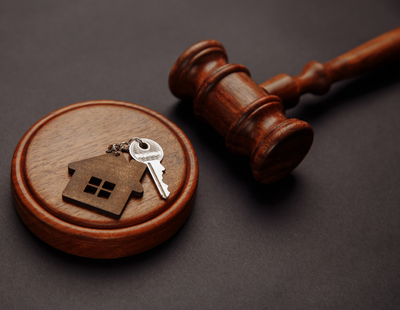
It is 50 years since the Leasehold Reform Act 1967 became law and now a firm speciaising in enfranchisement extension wants the government to overhaul the measure to ensure leaseholders are treated fairly.
Louie Burns, managing director of Leasehold Solutions, says: “It’s an unfair, muddled law that requires radical amendments to make it fit for purpose. For example, the act does not currently include any clear definition of what a 'house' is, despite hundreds of costly court cases on the subject over the past 50 years.
"It beggars belief that the main legislative vehicle governing freehold purchases in this country can't even agree on a legal definition of a house, particularly when new-build houses are being sold on a leasehold basis. We would like to see an immediate ban on the sale of leasehold houses, and the introduction of a clear definition of what a house is for the purposes of the act.”
In addition, he says there are no prescribed timelines in the 1967 Act that specify how long a freehold acquisition should take; the freeholder decides how long this process will be and, of course, they can bend the rules to suit themselves.
"We would like to see the government change the current legal process to introduce defined statutory timeframes, so that leaseholders can complete their enfranchisement within a clearly specified and acceptable period" he adds.
The Leasehold Reform Act 1967 gives leasehold tenants of flats and houses the right to buy the freehold of their property via enfranchisement. The 1967 Act has been amended and extended over the years, which has made the rules for calculating the price of purchasing the freehold very complicated.
Burns continues: "There are three different ways to calculate the cost of buying the freehold of a property depending on the terms of the lease, and each one is more complex than the last. What they all have in common is that they give leaseholders a legal headache and unfairly cost them thousands of pounds to buy the freehold, in addition to costly legal fees.
"In addition, there is no simple way to remove unnecessary fees or restrictions when the leaseholder buys the freehold. Clauses that require the leaseholder to pay hundreds of pounds to their freeholder for permission to change the carpets in their home, for example, have been put there simply to make money for the freeholder and are totally unacceptable. Leaseholders currently have to apply to the Upper Tribunal to make a case or the removal of such restrictions – for which they incur further legal costs.
"The government needs to urgently introduce a single, transparent method for calculating the cost of freehold purchases, so that leaseholders and their advisors are able to understand and agree a fair price with their freeholder.
"In addition, we'd like to see legislation included to enable leaseholders to remove onerous licences and permissions during the freehold acquisition."













%20-%20IMAGE%20Client%20Accounting%20%E2%80%93%20what%20are%20your%20options.jpg)





Join the conversation
Jump to latest comment and add your reply
The whole encumbrance of leaseholder permission should be reviewed whether acquiring the freehold or not. My leaseholder held me to ransom recently over the price of the "management pack" the solicitor requested to complete a sale for me and for payment of long disputed spurious fees. Another company managing a property I bought have increased their fees by 32% this year and want paying every 6 months each time the AST is renewed. Once I missed the ground rent invoice as they sent it to an address I'd advised them I had left (and not even a copy to the leasehold address nor by email) just "deliberately?" to former address. In no time they had added £400+ extra fees for court and legals to the original £100 demand and attached charge to my mortgage under some little known lease clause enabling them to do so. First I knew I had a CCJ (never before nor since) was when my mortgage company wrote to tell me why my mortgage had increased- HOW COULD THEY DO THAT LEGALLY. Total scam!!!!!!!!
I don't blame solicitors for charging extra to handle leasehold transactions, its a minefield. Luckily in my small town 50% of the leaseholds own and manage a proportional share of the freehold, which is wonderful. Not certain its the same as commonhold but could be. The other 50% have 'defective' leases, in part as there is no management company! I am glad not to have to handle sales of leaseholds where there is a greedy management company and feel it is very regrettable that such companies are often sold on as investments, often enough to overseas owners who inevitably only see them and the leaseholders as cash cows. Time for a legal rethink?
Please login to comment